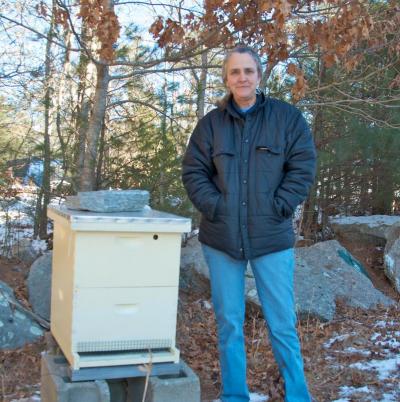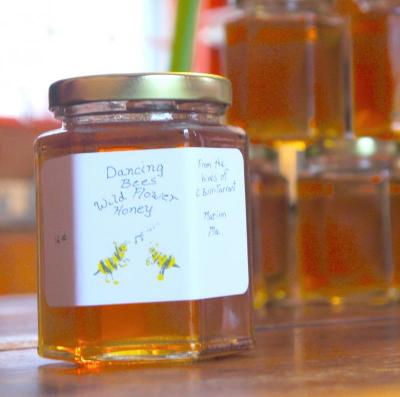Hey honey! Local beekeeper struggles to keep colonies healthy
There’s a lot of buzz around bees these days. With bees plagued by mites and viruses, beekeepers have to do a lot of work to keep their honey-producers healthy, but the rewards are sweet says Cornelia Burr-Tarrant.
Burr-Tarrant, a native of Mattapoisett and current Marion resident said, “I was always interested in bees. I’m a naturalist at heart.”
It wasn’t until seven years ago that Burr-Tarrant, who runs a marine construction company with her husband, took up beekeeping. After taking a class with the Barnstable County Beekeeping Association, she bought some bees and set up several hives.
Currently, Burr-Tarrant has five hives split, some secluded behind some buildings at her brother’s company and the rest in her backyard.
“It’s nice to go out with a cup of coffee and see what’s happening out there,” she said.
Finding a good location is a challenge, said Burr-Tarrant. “You need a place that has the right amount of sun, isn’t going to bother anybody, isn’t too windy, and where there are plenty of flowering plants.”
She added, “I like to keep them as far away as possible from things like lawns that have a lot of pesticides.”
The chemicals used to kill grubs and other pests that can mar a manicured lawn are also deadly to bees.
“It’s very prevalent,” said Burr-Tarrant. “[The chemicals] either kill the bees or the bees get disoriented and can’t find their way back to the hive. Most people don’t know what they use on their lawns.”
Chemicals as well as a surge in mites and viruses have put bees in jeopardy across the country. The advent of these dangers has complicated beekeeping, said Burr-Tarrant.
“Every year I lose at least one hive. Some years I’ve lost three out of five,” she said.
Leaving bees with enough honey and keeping just the right amount of space inside the hives helps prevent the colonies from collapsing, said the beekeeper.
She usually monitors her bees from the outside, opening the hives about six times a year.
“The more you watch them, the more you learn about them. They are complex,” Burr-Tarrant said. “They’re intriguing in that way, and they’re social.”
One day she would like to expand the number of hives, and maybe even break even with honey sales.
Keep an eye out for Burr-Tarrant’s label Dancing Bees, which is sold in local stores when there is enough to harvest.
“I find you can put honey in just about everything,” she said.














